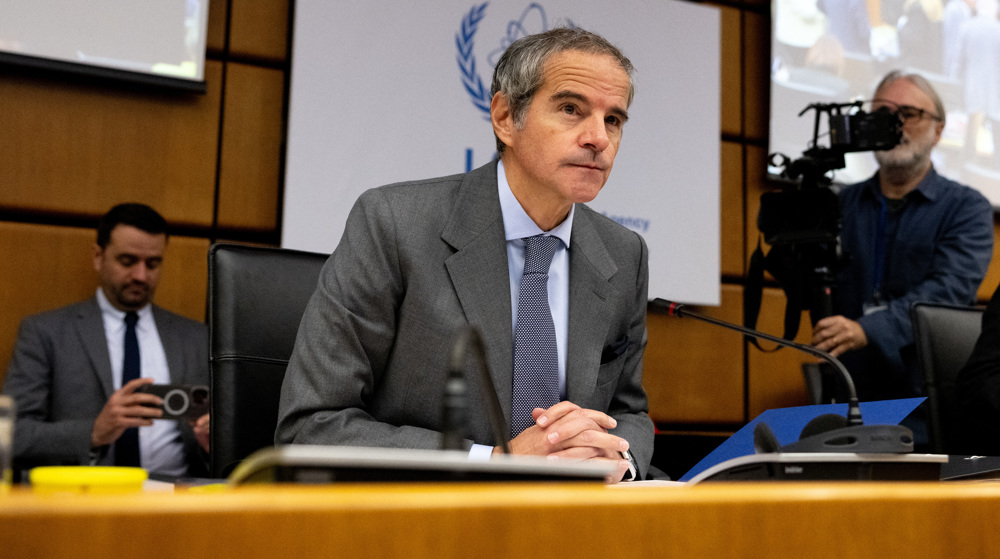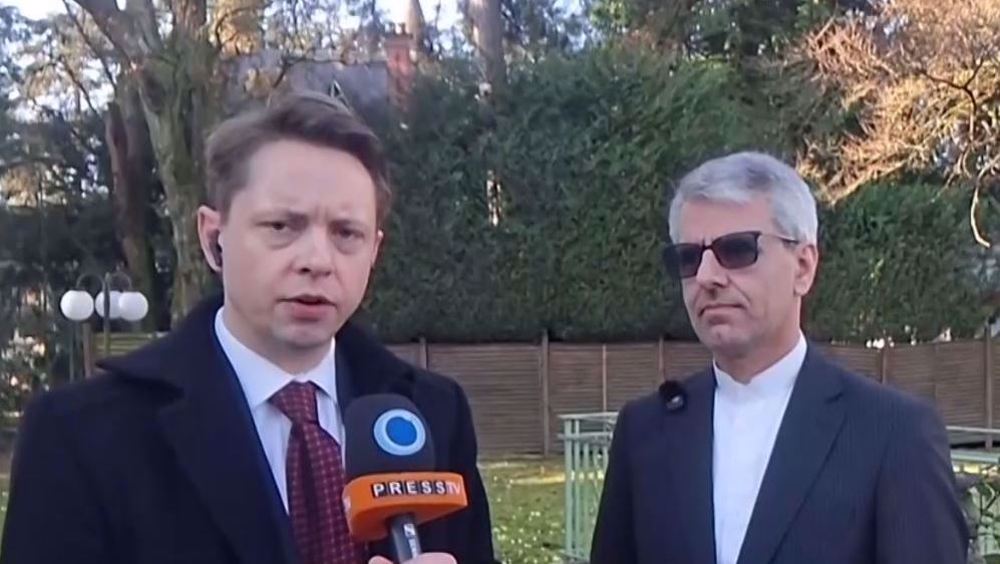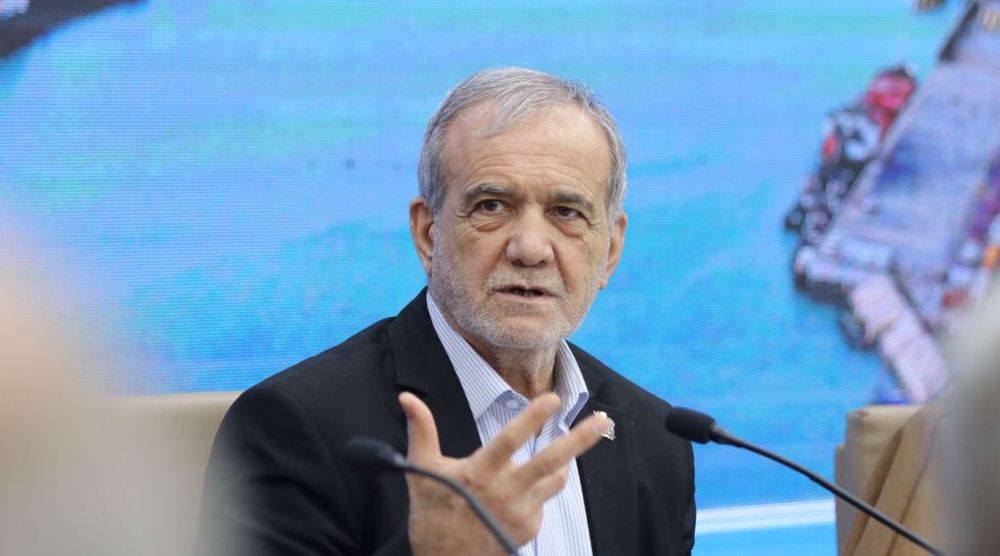Iran UN envoy: 'Desperate' US move to end sanctions waivers ‘pulls final plug’ on JCPOA
Iran’s ambassador to the United Nations says the US has destroyed the last means of retention of the 2015 nuclear agreement between the Islamic Republic and major world powers by ending waivers for sanctions prohibiting nuclear cooperation with Tehran.
“Two yrs ago, @realDonaldTrump ceased participation in #JCPOA,” Majid Takht Ravanchi reminded in a tweet on Thursday, referring to the nuclear deal by the acronym of its official name, the Joint Comprehensive Plan of Action.
In May 2018, the US president took an illegal and unilateral decision to quit Washington’s participation in the nuclear deal and re-impose the sanctions that the agreement had lifted, in defiance of the fact that the accord has been endorsed by the UN Security Council (UNSC) in the form of Resolution 2231.
“Now, in further violation of JCPOA & UNSCR 2231 @SecPompeo pulls final plug, imposing penalties for compliance EVEN w/nuclear provisions of 2231,” Takht Ravanchi added.
Two yrs ago @realDonaldTrump ceased participation in #JCPOA. Now, in further violation of JCPOA & UNSCR 2231 @SecPompeo pulls final plug, imposing penalties for compliance EVEN w/nuclear provisions of 2231.
— Majid Takht Ravanchi (@TakhtRavanchi) May 28, 2020
Claiming US is STILL “Participant” is not just preposterous; it’s FALSE.
The envoy was referring to recent remarks by US Secretary of State Mike Pompeo, during which he announced another controversial decision by Washington to end sanctions waivers for nuclear cooperation with Iran.
Takht Ravanchi also pointed to the US’ intention, which has likewise been announced by Pompeo, to have the UN extend an arms embargo against Iran, which is set to expire in October in line with the JCPOA.
According to the US’ top diplomat, Washington is considering “every possibility” to renew the ban that prevents sales of conventional arms to Iran. Pompeo has also been reported to be planning to claim that Washington is still a JCPOA partner to enable Washington to push for prolongation of the arms embargo.
“Claiming US is STILL “Participant” is not just preposterous; it’s FALSE,” Takht Ravanchi said.
‘US actions have no effect on Iran’s nuclear work’
In a related development also on Thursday, Behrouz Kamalvandi, spokesman for the Atomic Energy Organization of Iran (AEOI), told ISNA news agency that although the US wants its “maximum pressure” campaign against Iran to work, the US’ move to "end the waivers for nuclear cooperation [with Iran] under the JCPOA, in practice, bears no effect on the course of Iran’s activities.”
By “maximum pressure,” the official was referring to Trump’s trademark anti-Iran drive that he brought into force after taking office in 2016, under whose framework Washington left the nuclear deal and returned the sanctions.
“In practice, nothing is going to happen [as a result of such moves],” Kamalvandi remarked, saying Washington itself was well aware that such maneuvers were nothing beyond an attempt at creating fanfare across the media.
The US actions, he added, were “a desperate attempt” at deflecting attention from Washington's back-to-back defeats against Iran at a time when the Islamic Republic is decisively advancing its policies as witnessed by the country’s remarkable progress in the field of nuclear energy and its ongoing sales of oil derivatives to Venezuela.
The Islamic Republic is shipping some 1.53 million barrels of gasoline to the Latin American country in defiance of American sanctions targeting both the nations.
The shipment is underway using a five-strong fleet of Iranian tankers, three of which have entered the Venezuelan waters. A fourth tanker has entered the Caribbean and is nearing the country’s maritime area.
Washington has said it is considering “measures” against the legal exports.
The Venezuelan armed forces, however, brought the vessels under their protection upon their sailing into the country’s territorial waters. Iran has sternly warned Washington against any act of mischief, saying it would duly retaliate against any American interference.
Nuclear cooperation with Russia
Elsewhere in his remarks, the AEOI official reflected on Iran’s cooperation with the JCPOA’s remaining signatories.
Underlining the futility of the US’ move on the waivers, Kamalvandi said Iran can obtain fuel for its nuclear reactors from Russia “without any problem and at any time we found the need.”
He added that even if the existing nuclear fuel ran out, the Islamic Republic would be able to produce its own fuel without any need to “[rely on] help from any other country.”
US officials warn of challenges posed by Iranian drones
'We warned repeatedly about the limit to our patience': Hezbollah leader
IRGC announces 'blinding' US, Israel's eye in region; vows harsher retaliation coming
Iraqi resistance leader urges Americans to ‘reclaim’ country from Israeli ‘puppet Trump
Iran blasts US-Israeli use of autonomous killer systems against civilians as 'war crime'
US-Israeli aggression left Tehran with no choice but to defend Itself: President Pezeshkian
Iran urges immediate intl. action against US attacks on schools
Iraq won’t allow terror groups to cross border into Iran: Security official












 This makes it easy to access the Press TV website
This makes it easy to access the Press TV website